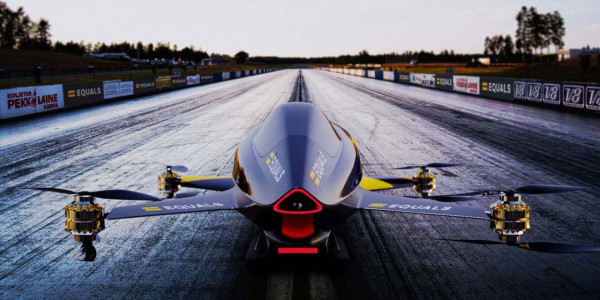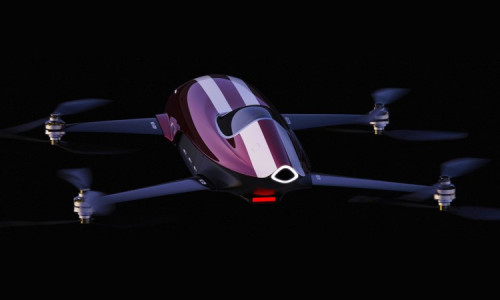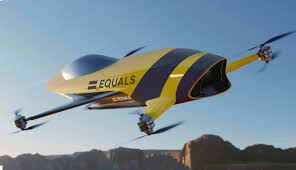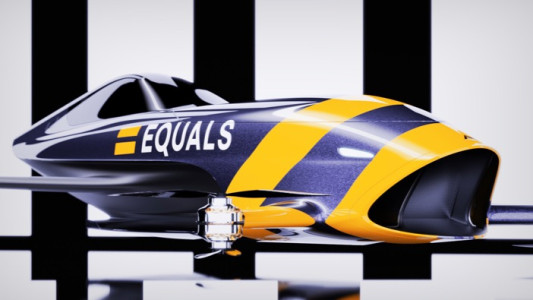
WHY THIS MATTERS IN BRIEF
As drones get larger and flying cars take flight it’s inevitable that someone’s going to want to race them and create a new sport.
 Interested in the Exponential Future? Join our XPotential Community, connect, watch a keynote, or browse my blog.
Interested in the Exponential Future? Join our XPotential Community, connect, watch a keynote, or browse my blog.
As the power to weight ratios of drones increase, thanks to advances in battery technology and drone design, we’re nearing the point where we can move from building small drones that lift light objects to much bigger drones that can lift much heavier ones, including cargo and people. And whether that translates into flying cars and flying taxis, like the ones we’ve seen trialled in Dubai and Germany, or drones that can deliver medical supplies across oceans, albeit small oceans, as the technologies improve it opens the door to a wide variety of new drone applications including awesome flying car races that at first glimpse don’t look too far removed from the races in Star Wars.
The Formula E electric vehicle racing series was conceived in 2011, and nearly a decade later electric vehicles are well on the way to mass commercialisation. Now, following in the more grounded tyre tracks of Roborace, the world’s first fully autonomous electric race car that I talked about a while ago, Airspeeder, is “creating the first motorsports program for electric flying cars,” and this week they announced a seven figure funding round to launch its series.
Behind the scenes
Founders of the new flying EV series add it could “accelerate progress toward mainstream sustainable, electric air mobility.”
The company secured funding from two of Australia’s leading technology venture capital firms, Saltwater Capital and Jelix Ventures. Alauda, the tech company behind the series, is based in Adelaide, Australia, and other investors include EQUALS, a financial firm, and the German logistics company DHL.
Originally Airspeeder had planned to conduct manned testing in California’s Mojave Desert in 2020 but the COVID-19 pandemic put those ideas on hold, so now the testing will now shift to South Australia, closer to Alauda’s home turf.
The Airspeeder vehicle, which weighs about 550 pounds, uses a battery pack that can be swapped out during the race. The packs are expected to last for about 15 minutes. Four 32-horsepower electric motors propel the cars to a top speed of about 125 miles per hour. The vehicle tears through the air between about 15 and 130 feet off the ground.
Courtesy: AirSpeeder
Matt Pearson, founder of Alauda and the Airspeeder series, said: “In economic terms, the eVTOL sector has the potential to be worth €1.37 trillion by 2040. It is backed by some of the biggest names in aviation, technology, and automotive.
These companies develop technology that spans both growth and recessionary economic cycles. We remain focused on our role to accelerate the development of these technologies.”
There are significant obstacles for Urban Air Mobility to overcome though, including regulations around vertiports, some of which have already been designed by companies like Uber, managing airspace, which Singapore is currently working on, and developing reliable supply chains. Nonetheless, an entire industry is emerging for both “flying delivery vehicles” and sky taxis. However, before it’s ready for prime time the public will need to buy in to the thought of flying vehicles in their neighbourhoods which could be tricky…
There’s no doubt that a racing series like Airspeeder will be a thrill to watch, but it would also be a channel to communicate the Urban Air Mobility roadmap to the public if the company ever hopes to move their idea from the air track to the mass market.






















